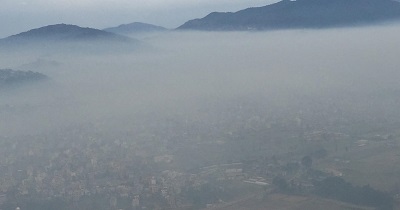Beijing, (Samajweekly) The combination of soaring heat and smothering fine particulate pollution may double the risk of heart attack deaths, according to a new study of more than 202,000 heart attack deaths in China.
The study, published in the journal Circulation, showed the risk was more in elderly and among women.
The greatest increase in the risk of death from heart attack was seen on days that had the combination of extreme heat and high levels of PM2.5.
“Extreme temperature events are becoming more frequent, longer and more intense, and their adverse health effects have drawn growing concern,” said senior author Yuewei Liu, Associate Professor of epidemiology in the School of Public Health at Sun Yat-sen University in Guangzhou, China.
“Another environmental issue worldwide is the presence of fine particulate matter in the air, which may interact synergistically with extreme temperatures to adversely affect cardiovascular health,” he added.
To examine the impact of extreme temperatures with and without high levels of fine particulate pollution, the researchers analysed 202,678 heart attack deaths between 2015-2020 that occurred in Jiangsu province, a region in China with four distinct seasons and a wide range of temperatures and fine particulate pollution levels.
The study estimated that up to 2.8 per cent of heart attack deaths may be attributed to the combination of extreme temperatures and high levels of fine particulate pollution.
Fine particulates are less than 2.5 microns in size and may be inhaled deep into the lungs, where they can irritate the lungs and blood vessels around the heart. Most are associated with fuel combustion, such as particles from car exhaust, factory emissions or wildfires.
“Strategies for individuals to avoid negative health effects from extreme temperatures include following weather forecasts, staying inside when temperatures are extreme, using fans and air conditioners during hot weather, dressing appropriately for the weather, proper hydration and installing window blinds to reduce indoor temperatures,” said Liu.
“Using an air purifier in the house, wearing a mask outdoors, staying clear of busy highways when walking and choosing less-strenuous outdoor activities may also help to reduce exposure to air pollution on days with high levels of fine particulate pollution.”
The study recommended taking fine particulate pollution into consideration when providing extreme temperature warnings to the public.









